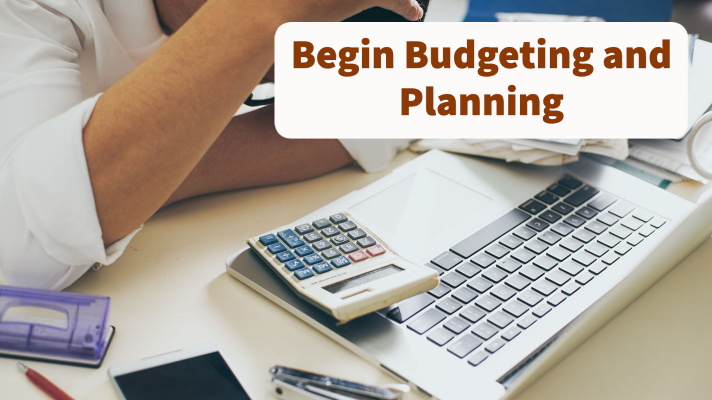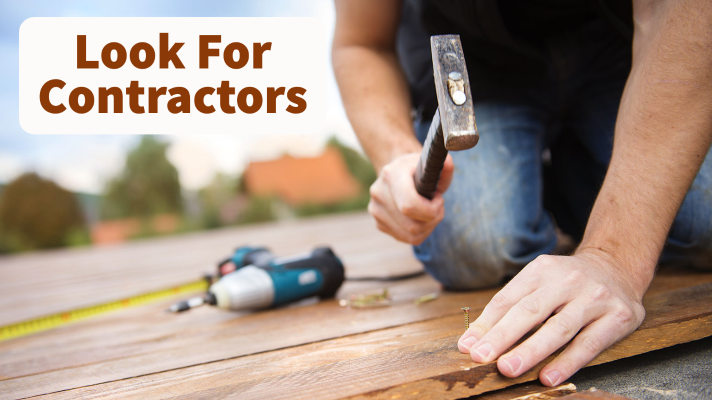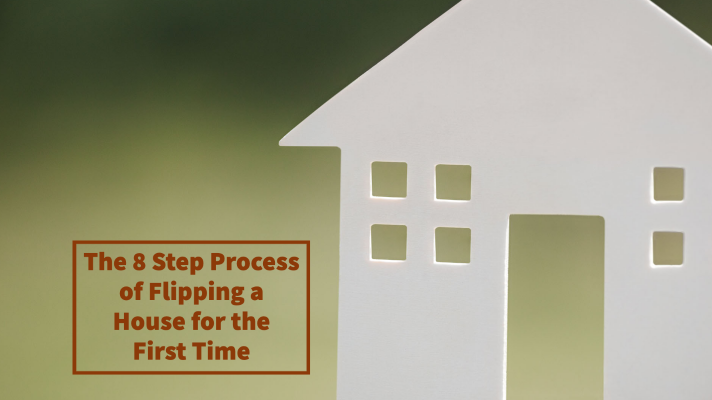
There are many reasons why Americans are drawn to flipping houses. For one thing, house flipping offers many the opportunity to make an additional income aside from what they receive from their day jobs. Flipping a house is the type of project that can take time, but in turn, it will pay off with a significant profit if it is done correctly.
Due to recent economic difficulties, countless people are searching for ways to invest and make money in a relatively short period of time. Furthermore, there are many who actually have a passion for renovations and decor. They don’t just flip homes for the money, but do it because they love the real estate industry. There is a reason why $394 billion was spent on home improvement sales in the United States in 2018 alone. It’s no wonder if you’ve started wondering about the best way to make money flipping houses.
Flipping a house is a great opportunity and can certainly reap a high profit, but it also can be somewhat risky. Everyone has to start somewhere — and every house flipper will have to start with their first property. While your first house may not be your most profitable, the last thing you want is to lose money on that house and prevent yourself from continuing on. You may want to devote your time, energy, and money to one big project, but you might be able to see yourself flipping houses for years to come. The most important thing is that you give yourself the best possible opportunity for success, and research the best way to make money flipping houses.
Although you should find a mentor or at least someone to model yourself off of as you begin to flip houses, you’re also responsible for doing your own research. That’s why we’re running down the basic steps of flipping homes, from the beginning to the end. Remember that there is a fine line between being cautious and being afraid. If you manage your money wisely and choose the right property, you would be amazed by what you can do when flipping houses.

1. Find Your Real Estate Market
Typically, most people flipping houses for the first time will research real estate markets in the general area in which they live. That way, it will be easy for them to commute from their renovation project to their home and constantly be available for contractors. Of course, others actually live in the houses they’re flipping while they’re under construction. It really depends on what you’re interested in pursuing. Either way, you need to do your due diligence and carefully research different real estate markets before settling on the one you want to invest in.
You will obviously be driven in part by the amount of money you want to spend. A lot of first time house flippers understandably invest in more affordable real estate markets. While there is less reward, there is also less risk. And if you’re flipping a house for the first time, the less risk involved, the better.
You’ll also want to look into the type of neighborhood you’re considering. Neighborhoods are often ranked by investors based on their viability levels. A common ranking system is the class system, in which neighborhoods are organized from Class A to Class D. Wealthy, upper-class professionals will populate Class A neighborhoods and the rankings will degrade from there. Remember, there is nothing wrong with investing in more unwanted properties located in Class D neighborhoods. Some investors actually specialize in flipping houses in Class D neighborhoods, though they are not without their own risk factors. They may require higher insurance premiums and it’s quite possible that your market will more often be other investors (like landlords, versus people seeking to own their own homes). This often means lower profit margins. Figuring out your market will take time, but a part of finding the best way to make money flipping houses.

2. Begin Budgeting and Planning
You can’t buy a house until you have a budget and business plan in place, and you certainly won’t figure out the best way to make money flipping houses unless your budget and business plans are realistic. While we may refer to flipping houses as projects or ventures, ultimately flipping a house is a business — even if it’s a short-term business. You need to treat it as such, even if you’re having fun.
You need to think first about how much you are willing and able to invest in a home, as well as how much you want to keep in your reserve to cushion your bank account. Furthermore, consider whether or not you have enough money to cover renovation costs until you are reimbursed by your lender, as you will likely need to put forth a good deal of money before reimbursements come through.
Furthermore, you should consider the scope of the project. Some house flippers like to invest in truly degraded properties and gut them, practically rebuilding them from the ground up. Obviously, this requires a greater investment of time and money. Generally, while you’re still beginning and trying to find the best way to make money flipping houses, you should focus on properties that require more cosmetic repairs than structural repairs. Focus on issues like kitchen and bathroom updates, new coats of paint, and new fixtures. You can begin trying your hand at more challenging renovations with your next house.
The reason why you’ll want to avoid issues that require, for example, sewer and drain services or mechanical repairs is that those types of repairs often require permits. That’s incredibly challenging for first-time house flippers. You will make less money on your first flip if you focus more on cosmetic problems, but this first time will be as much of a learning experience as it is a money-making opportunity.
3. Get Your Financing In Order
When attempting to decipher the best way to make money flipping houses, you’ll probably realize quickly that you need to get your money in order as quickly as possible. You want to have your financing before you need it. Imagine how frustrating it would be for you to be approved for a home without having the financing in order.
Many house flippers are not approved for traditional mortgage loans — at least not the first time around. This isn’t necessarily a bad thing. Mortgage loans can take a long time to pay off, after all. You may be better off speaking to a private money lender. Private money lenders often charge higher interest rates, but they also expect the loan to be paid back over a shorter period of time, which makes the higher interest rates less impactful. Furthermore, they do not worry as much about an applicant’s credit history and can often be more flexible regarding repayment terms. You should consider carefully who you’re borrowing from, and be honest with yourself about whether or not you can pay them back in a timely manner.

4. Look for Contractors
Now is the time to begin networking with contractors and to focus on finding the right ones to help you with your project. Even if you feel that you have found the best way to make money flipping houses, it will all be for nothing if you don’t have contractors that you can trust. This is particularly important if you plan on flipping houses for the long term and want to build up a good reputation in your community. You both want to have contractors that you can rely on for repeat work and great rates; and contractors that will execute excellent work so that you aren’t dealing with bad reviews or even legal problems from unhappy buyers.
Start getting quotes once you have a house under contract. This will give you an idea of how much building materials will cost, as well as labor and other components of your renovations. Even if you think you have an idea of the type of work you’ll want done, speak to general contractors, electricians, roofers, plumbers, painters, and HVAC professionals. You never know what will come up when you begin working on the house, and who you’ll need to get in touch with.
5. Find the House
So now it’s time for you to find a great house for sale that will be perfect for you to flip. This is where it’s important to balance being picky with being realistic. You need to buy below market value, while also having wide enough margins to cover your expenses. There will be a few things to pay for as you buy the house. These will include closing costs, realtor fees, and carrying costs throughout the renovation.
There are realtors who specialize in below market deals that you can work with, as well as wholesale sellers that can offer deals off the market. In some cases, you may even want to begin advertising yourself as a buyer of below market value homes. But this is really for serious flippers. The best way to make money flipping houses really lies in the house itself; both in terms of its quality and the amount of money you can make flipping it. While it may be tempting to jump on a home that doesn’t meet your budget and business plan, stick to what you had in mind before. Be skeptical and inspect all deals that seem too good to be true very carefully, and don’t let yourself get distracted by the house’s sticker price. Remember what you’ll spend on renovations and repairs. There is no point in buying a house that seems like a great deal if you’re going to go over your budget repairing water damage.
6. Buy the House
Now that you’ve found the house you want to flip, you need to get ready to make an offer. You’ll need to have the house inspected by a professional home inspector. As previously mentioned, you’ll want to make sure that your earlier homes are structurally sound. Even if you think you’ve found the best way to make money flipping houses, it’s not going to matter if you run into an expensive roof repair that you didn’t expect.
After the home is inspected, you’ll want to do a walkthrough of it with contractors. This is why you need to have multiple contractors in your network before you make an offer on a home. If you know that the house has some plumbing issues or needs a bathroom update, make sure that you get in touch with multiple providers of local plumbing services and receive quotes from them that you can compare. This will allow you to make a more informed offer on the house. After this is done, you can move forward with buying the house.
7. Renovate
Now is the time for you to really begin working on the house. Keep in mind that as the house is renovated, you will be paying interest as well as utility costs, taxes, and insurance. The sooner the house is sold, the sooner you can collect your profit. The best way to make money flipping houses is to treat every day after you buy the house as a day that you are on the clock and potentially losing money.
It’s important that you are firm with your contractors about pricing. You may have committed to an HVAC repair for one price, only for your contractor to raise the price after they arrive. Get ready to put your foot down. This is also why it’s so important for you to be careful when selecting contractors, and for that matter, for you to be ready to work with a backup contractor if the first falls through.

8. Sell the Home
After your renovations are done, you can sell the house! You’ll want to make sure that you work with a great realtor and of course advertise the house online. There is no single best way to make money flipping houses, but having a great real estate agent on your side can make a major difference. You should already have spoken to a realtor about what they think a home’s after repair value would be.
Remember that though it can be tempting to raise the price of a house after you’ve put so much time and effort into it, the goal is to sell it and make a profit. You do not want your home to spend so much time on the market that you lose money paying for property taxes, insurance, and interest.
Again, there is no exact best way to make money flipping houses. Everyone will have different opinions about what to do, and every real estate market is different. You will also need to adjust to changing times and demands, as well as changing trends. But if you research properly, follow a plan and stick to your budget, you stand a great chance of making your first flip a success.
